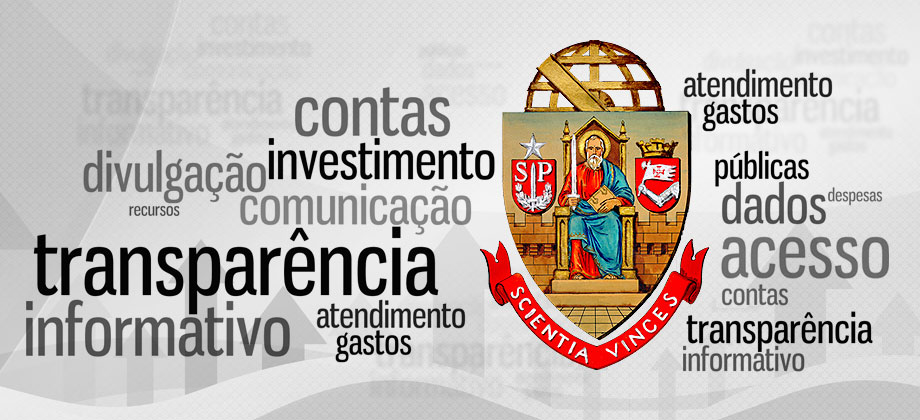Dialogue on Renewable Energy and the Energy Transformation
DIALOGUE ON RENEWABLE ENERGY AND THE ENERGY TRANSFORMATION
June, 17 and 18, 2019
Institute of Energy and Environment, University of São Paulo - IEE/USP
Av. Prof. Luciano Gualberto, 1.289, Cidade Universitária, São Paulo, SP, Brasil
Free Registration only by email comunicacao@iee.usp.br
Please send: name/e-mail/position/institution
There will be simultaneous translation
Justification
The event will address several of the priority areas related to energy, under technical, economic, social, environmental and gender aspects. It will strengthen bi-regional ties and improve mutual knonwledge by establishing personal relations among the discussants and through the appropriate diffusion of information on the event through social media and academic channels.
Objective
Decarbonization of the energy sector is needed to meet commitments under the Paris Agreement on Climate Change; Renewables are key to this decarbonization. However, policies and regulations from the national government are not enough; there needs to be engagement from those entities that are faced with making energy decisions. Cities and regions are responsible for providing services to their constituents.
Demonstrating how renewable energy can meet energy needs efficiency and effectively is central to changing decision-making processes. Illustrating the positive co-benefits of renewable (energy security, emission reductions, improved employment etc.) is also needed. Acceptance of renewable completes the picture; the gender dimension of energy cannot be ignored.
The event is structures around the benefits and co-benefits of renewables, using Brazil as the starting point for discussion
This event will:
. Present the current status of renewable globally
. Outline Brazil's status and what has changed
. Illustrate the role of cities and regions in driving renewable energy uptake
. Discuss the socio-economic co-benefits of renewables
. Show the importance of gender in supporting acceptance and uptake of renewables
Key Inputs
The event will present the main findings from REN21's Renewables 2019 Global Status Report (for previous reports, see: http://www.ren21.net/gsr) and will use this latest data to discuss Brazil's role in the energy transformation.
This year's edition has a special chapter documenting the role of cities and regions in driving renewable energy uptake. The organizers have therefore secured the interest of R-20 Latin America to complement this event by bringing in city/region perspective. The discussion will also include representatives from private setor both from Brazil and Europe to explore the opportunities offered by the energy transformation for small and medium-sized enterprises, increasing employment and competitiveness.
The gender dimension of the energy transformation will also be addressed; the persistent underrepresentation of women in the energy sector needs to be improved. (cf. IRENA's most recent study entitles "Renewable Energy: A Gender Perspective").This question is of relevance in Brazil as it is in other countries. An anticipated outcome of the event is to assess the interest of establishing a Brazilian Chapter of the Global Women's Network for the Energy Transition (GWNET).
______________
REN21's Renewables 2019 Global Status Report is produced annually with the contribution of over 900 energy experts from around the world, including researchers from IEE/USP. It is the industry standard for status of renewables.
The Global Status Report includes:
. Global Overview
. Market & Industry Trends
. Distributed Renewable Energy for Energy Access
. Investments Flows
. Policy Landscape
. Energy Efficiency
. Enabling Technologies
. 2019 Feature "Renewable Energy in Cities"
The report covers:
. All renewable energy technologies
. Power, heating & cooling and transport sectors
___________________
Responsible Institutions
. Institute of Energy and Environment of University of São Paulo - http://www.iee.usp.br
. The Renewable Energy Policy Network for eht 21st Century (REN21 http://www.ren21.net) is a multi-stakeholder network dedicated to the rapid uptake of renewables to drive the energy transformation. It was created as outcome of Bonn2004 (the first international conference dedicated exclusively to renewables). It is a German redistered non-profit organization with is headquarters at the UN Environment offices in Paris http://www.irena.org/publications/2019/Jan/Renewable-Energy-A-Gender-Perspective.
. The Global Women's Network for the Energy Transition (GWNET, http://www.globalwomennet.org), is an Austrian registered international non-profit organization. Its mandate is to promote the equal participation of women in the energy sector in all fields and all regions to accelerate the energy transition. It does this through advocacy, technical assistance, knowledge transfer, mentoring and coaching. GWNET has over 150 individual and corpotate members; furthermore, working relationships have been successfully established with several industry associations.
SPONSORS
EU-LAC Foundation is funded by its members and, for this event, by European Union and by German Government.




PROGRAM
June, 17, 2019
Where Do We Stand in the Energy Transformation? Launch of REN21's Renewables 2019 Global Status Report
08h30 - Registration
09h00 - Opening Session
. Ildo Luis Sauer, Vice-Director of IEE/USP
. Renato Godinho, Biofuture Platform Chairperson and National Focal Point for Brazil, Head of Division for
Energy Progress, Ministry of Foreign Affairs, Brazilia Federal Government
. Marcos Penido, State Secretary of Infrastructure and Environment of State of São Paulo (tbc)
. Irene Giner-Reichl, Ambassador of Austria to the Federative Republic of Brazil and Suriname,
GWNET's President
. Rana Adib, Executive Secretary, REN21(video)
09h30-12h00 - First Session: Status of Renewable Energy
Chair: Irene Giner-Reichl, currently Ambassador of Austria to the Federative Republic of Brazil and Suriname, GWNET's President
Presentation: The global status os renewable energy (REN21)
Irene Giner-Reichl, currently Ambassador of Austria to the Federative Republic of Brazil and Suriname, GWNET's President
Presentation: The status of renewable energy in Brazil
Jose Goldemberg, IEE/USP
Abstract: Brazil is among the 15 countries that generate more than 70% of its electricity from renewable sources. It is also placed among the 15 countries with the lower carbon intensity in its energy mix along with Norway, Switzerland, Finland, France, Ireland, Paraguay and others. The carbon intensity of most of these countries is declining since 1990 but Brazil is an exception and its carbon intensity has increased 11,4% from 1990-2016 due to problems in its hydroelectricity system and the increase use of thermal plants using fossil fuels. According to the Decennial Expansion Plan of the government, this situation will be reversed until 2027. The reduction of the hudroelectricity share will be compensated by the large expansion of the contribution of wind generated electricity (11,7%), biomass (10,0%) and solar (3,4%). The role of the PRE-SAL oil production will be discussed.
Round-table discussion: How to accelerate and scale up energy transition; multi-stakeholder from Brazil (and abroad)
Participants:
Alessandro Gardemann, ABIOGAS
Camila Ramos, ABSOLAR
Edmilson Moutinho dos Santos, IEE/USP, RCGI/Shell
Elbia Gannoum, ABEEolica (tbc)
Roberto Zilles, IEE/USP
Suzana Kahn Ribeiro, UFRJ
Telma Teixeira Franco, UNICAMP
GWEC - Global Wind Energy Council (tbc)
12h00 - Lunch break
14h00-17h00 - Second Session:The Role of Cities and Regions in the Energy Transition
Chair: Fernando Chucre, Secretary of Urban Development, São Paulo City
Presentantion: The role of cities (REN21) - Presentation on first findings of the cities report
Rana Adib, Executive Secretary, Renewable Energy Policy Network for the 21st Century (REN21) (video)
Abstract: Cities and local action play a key role in the energy transformation. However, information is dispersed and with limited focus on how cities scale up renewable energy and its associated benefits, including air pollution, energy security and access, and socio-economic issues. This intervention will presentation initial findings from aa new report that documents the role cities and local action play in advancing the global renewable energy transformation. Both the global and regional context will be presented. Examples from Latin America cities, including Brazil will be highlighted.
Presentation: The role of regions (R20) presentation
Jorge Machado, Director of R20 in Brazil (http://www.regions20.org)
Round-table discussion: Multi-level governance in the energy transition (players from national governments, regional governments and cities)
Participants:
. Laura Valente, FGV/SP
. Miguel Bucalem, USP Cidades
June, 18, 2019
Harnessing the Power: Engaging women to drive the energy transformation
09h00-12h00 - Third Session: Launch of GWNET in LAC
Chair: Irene Giner-Reichl, GWNTE's President and Ambassador of Austria to the Federative Republic of Brazil and Suriname
Presentation: The Global Women Network ofr Energy Transition
Christine Lins, Executive Director of GWNET (video)
Abstract: It is a well-known fact that the energy sector continues to be male-dominated. A recent Irena study on "Renewable energy: a gender perspective" estimates that the renewable energy sector employs 32% of women, compared to 22% in the overall energy sector. This under representation deprives the energy industry of the creativity and resourcefulness of women, thereby potentially slowing the transition to renewable energy systems. Gender diversity drives innovation, opens new pathways for the technology deployment, brings fresh perspectives to development of societies, atracts, and retains a richer pool of talent. This networking event is the first in a series to empower female professionals in the Latina American energy industry. It will discuss what is needed to give more visibility to women in the sector, thereby striving for more gender diversity and strengthening the industry.
Representative from women in energy sector are being invited, such as:
. Alejandra Campos, REDMEREE
. Ana Paula Fava, Civil Cabinet, São Paulo State Government
. Andrea Heins, GWNET, Argentina
. Camila Brandão, RCGI/Shell
. Camila Ramos, ABSOLAR
. Clarissa Brandão, UFF
. Drielli Peyerl, IEE/RCGI
. Elbia Gannoum, President of ABEEolica
. Hirdan Costa, IEE/USP/ RCGI/ RCGILex
. Karen Mascarenhas, RCGI/Shell
. Laura Valente, FGV/SP
. Marcela Ganem Flores, ANP
. Maria Cristina Fedrizzi, IEE/USP
. Moira Hanes, Empowered by Light
. Monalisa Gomes, Fronius
. Patricia Iglecias, CETESB
. Sandra Caballero, GIZ
. Suani Teixeira Coelho, IEE/USP
. Suzana Kahn Ribeiro, URFJ
. Telma Teixeira Franco, UNICAMP
. Virginia Parente, IEE/USP



